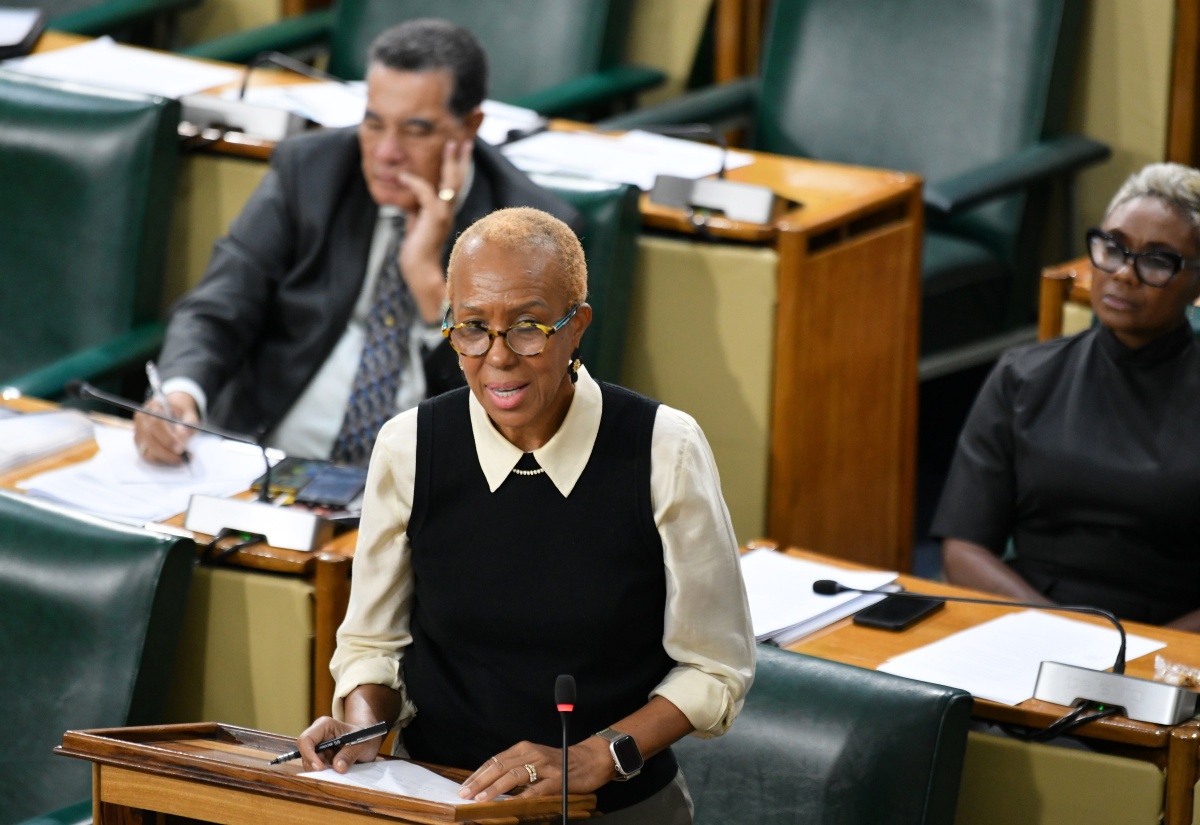House Approves Pension Reform, Grants Early Retirement with Full Benefits for Public Officers
By: , May 8, 2025The Full Story
The House of Representatives, on Tuesday (May 6), passed legislation granting public officers born between August 1, 1961 and February 28, 1963 the option of retiring before reaching age 65 while still receiving full benefits.
The Pensions (Public Service) (Amendment and Validation) Act 2025 was piloted by Minister of Finance and the Public Service, Hon. Fayval Williams.
The Bill also seeks to validate and confirm, as lawful, all the actions and omissions made by any person in relation to the grant of normal retirement of public officers during the period April 1, 2018 to the commencement of this Amendment Act.
In her remarks, Mrs. Williams said in 2011, the Government of Jamaica tabled Green Paper No. 2/2011 entitled ‘Options for Reform of the Public Sector Pension System’.
This paper proposed several measures to reform the pension arrangement for public officers, including increasing the normal retirement age from 60 to 65.
“As part of the policy development process, stakeholder consultations were held, and a Joint Select Committee was convened in 2012 to discuss the proposed reforms. While staff associations and collective bargaining units representing public officers did not object to increasing the retirement age, they expressed concerns about the adverse implications of immediate implementation,” Mrs. Williams said.
“The Government, in response, indicated that they would adopt a phased approach with a transitional period of 10 years. This was to facilitate a smooth transition for public officers who would have attained from 55 years up to 60 years as of April 1, 2018, and would have been preparing for retirement at age 60 years,” she added.
The Minister noted that on April 1, 2018, the Pensions Public Service Act, 2017 came into effect.
She said the definition of normal retirement age in Section 2 and Section 14 of the Act, introduced a new retirement age requirement.
Pursuant to the first schedule of the Act, the retirement age gradually increased from 60 to 65 during the period April 1, 2018, to April 1, 2023.
Mrs. Williams stated that the Governor-General, acting on the advice of the Public Service Commission and Permanent Secretaries and other designated persons, acting pursuant to relevant Delegation of Functions Orders issued by the Governor-General under Section 127 of the Constitution, approved the retirement of public officers under the Act from April 1, 2018.
“A policy schedule was developed to enable the retirement of public officers during the transition period. Since 2018, this policy schedule has been used by the Governor-General, acting on the advice of the Public Services Commission, and by any public officer acting under a Delegation of Functions Order issued by the Governor-General under Section 127 of the Constitution, to approve the retirement of public officers born between April 1958 and August 1961,” Mrs. Williams said.
She informed that the policy schedule is issued by the Office of the Services Commission annually through a circular.
The circular provides the retirement dates of public officers with respect to their dates of birth during the transitional period.
“However, while the policy schedule reflects a 10-year transition period, it does not reflect the five-year transition period that is in the Act and is inconsistent with the first schedule to the Act,” Mrs. Williams said.
“Since the Act provides that public officers retire at age 65 from April 2023, it is proposed to amend the Act to give public officers born between August 1, 1961, and February 28, 1963, the option to elect to retire before reaching the normal retirement age of 65 and be given the full benefits,” she added.
The Minister emphasised that this will not be considered or fall in the category of early retirement.
“This will be treated in the same manner as normal retirement, and will give effect to the policy intent,” Mrs. Williams said.





